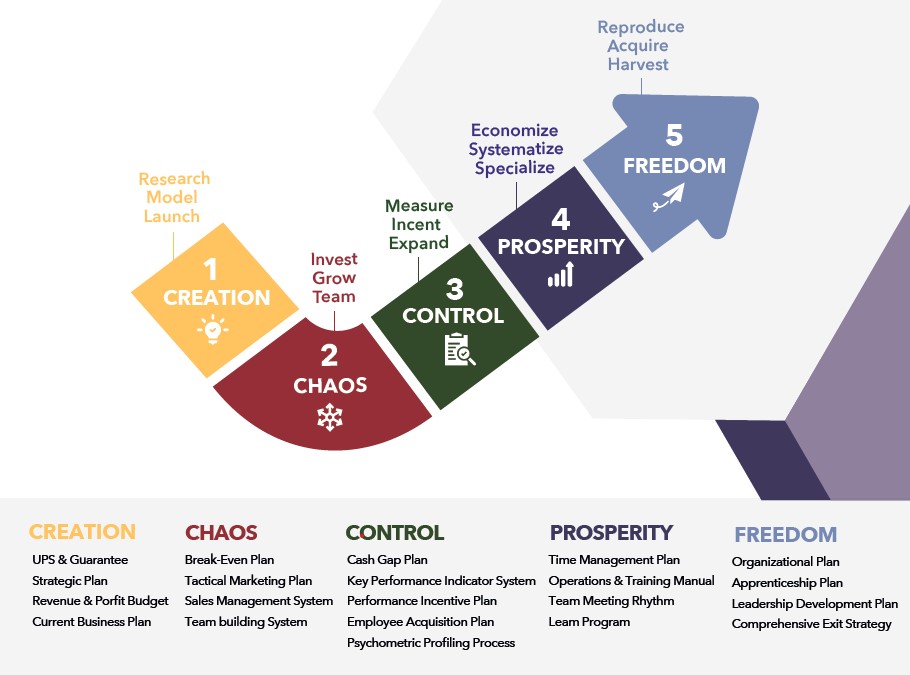SUCCESS!
You have been scheduled!
Thank-you for letting technology do the hard work for us :-)
Please check your email for confirmation.
Learn More
about Trent
from his blog

You Don’t Need Perfect Systems. You Need This First.
If you're like most business owners, you've probably had the thought: "If I just had better systems, everything would run smoother." Maybe you've tried task management tools, documented a few Standard Operating Procedures (‘SOPs’), or even brought in a consultant to help you "systemise". Yet things still feel messy, unpredictable and reliant on you.
Here’s the truth: systems don’t save broken businesses. They amplify what’s already there.
If you’re overwhelmed, constantly pulled into the weeds, or struggling to grow without burning out, the problem isn’t your lack of systems. It’s what you’re trying to build them on top of.
Let’s break this down.
The Systems Trap: Building on Sand
It’s easy to fall into the trap of believing systems are the magic bullet. They’re not. At least, not at the start.
Too often, we see founders invest in complex tech stacks, automation tools, or full-scale process mapping before they have the foundational habits to support them. The result? A graveyard of abandoned tools, dusty SOPs and team members who still come to you for everything.
Perfect systems built too early don’t create order - they magnify chaos.
What You Actually Need First: Time Management & Delegation Skills
Before you build, you need bandwidth. And to get bandwidth, you need to take back control of your time and energy.
At Butler & Co, we often start here:
1. Time Control
Your calendar is a mirror of your leadership. If it’s packed with low-value tasks, constant interruptions, or back-to-back firefighting, no system will save you.
That’s why we teach clients how to implement:
Zero-based scheduling: design your ideal week, not around meetings, but around priorities.
Default diary structures: lock in time for deep work, leadership, sales, and planning.
2. Delegation That Actually Works
Most delegation fails because it’s done reactively or incompletely.
Start by using a model called 1:3:1 Delegation: don’t come with one problem and no solution. Come with one problem, three options and one recommendation.
When your team starts owning outcomes - not just tasks - you stop being the bottleneck. Only then is it time to introduce scalable systems.
Good Systems Are Built After Clarity, Not Before
You wouldn’t draft legal documents before deciding what kind of business you’re in. The same applies here. Systems need to reflect your:
Business model
Team structure
Priorities
Personal time rhythm
Otherwise, you’re just building complexity on top of confusion.
Instead, we show clients a simple and learnable process to create Minimum Viable Systems (MVS):
Simple checklists or workflows
Clear handovers
Shared expectations
Easy-to-track measurables
MVS are owned by the team, not the founder. That’s the difference.
Real Client Example: From Reactive to Reclaimed
One of our clients, a creative agency founder, came to us with Trello boards, Zapier automations, and a full-time ops assistant. Yet she was still working 60+ hour weeks.
Within the first month of coaching, we:
Rebuilt her weekly calendar
Shifted 5 hours of quoting off her plate
Trained her assistant in the 1:3:1 model
Only after that did we start documenting core processes. Six weeks in, she’d reclaimed 12+ hours a week and was finally able to focus on hiring and sales.
Systems didn’t start the transformation. Better leadership and management skills did.
The Takeaway: You’re Not Behind. You’re Just Starting in the Right Place Now.
You don’t need to be perfect. You need to be intentional.
Before you invest time or money building out systems, ask yourself:
Am I in control of my calendar?
Is my team empowered to solve problems?
Do I have the headspace to build without burning out?
If the answer is no, then congratulations. You’re doing the smart thing by starting here.
Because the best systems in the world won’t fix a business that runs on overwhelm. But reclaim your time and upgrade your delegation - and the rest falls into place.
Want help with that?
We coach service-based business owners through a proven step-by-step approach to reclaim time, lead better, and build a business that works smoothly, profitability and (mostly) without them. When you're ready, book a time to chat with Trent.
Free Methodology Presentation: Learn Our Proven 5-Step System For Transforming Your Business Into A Firm That Runs Smoothly, Profitably and (mostly) Without You
Free Methodology Presentation: Learn Our Proven 5-Step System For Transforming Your Business Into A Firm That Runs Smoothly, Profitably and (mostly) Without You.
Confirm Your Details To Continue
Confirm Your Details To Continue

Schedule a call to see if our approach can help take your business to #1 in your market.
No pie-in-the-sky. No generic ideas.
No hard sell.
Just straight-forward analysis of your approach to marketing and sales, team-building skills, gross and net profitability, and business transfer readiness.
